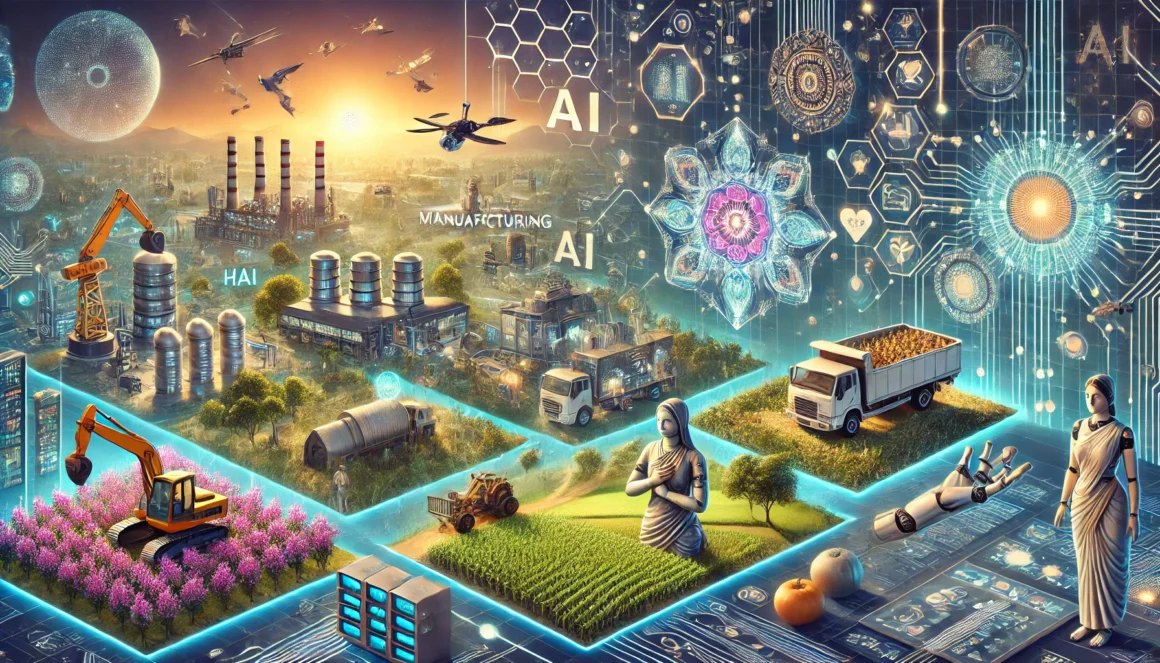India’s economic landscape is undergoing a profound transformation, fueled by the rapid adoption of artificial intelligence (AI) and automation across industries. As global competition intensifies, these technologies are becoming essential for businesses seeking to streamline operations, reduce costs, and remain agile in fast-changing markets. From manufacturing hubs and logistics firms to financial services and healthcare providers, AI-driven solutions are gradually reshaping how work is conducted and decisions are made.
In manufacturing, the introduction of robotic process automation (RPA) has helped companies optimize assembly lines and quality control procedures. Factories that once depended on a large manual workforce are now augmenting human efforts with intelligent machinery capable of repetitive tasks at scale. This shift not only minimizes human error but also frees employees to focus on higher-level responsibilities such as strategic planning and innovation. Moreover, AI-powered predictive maintenance tools analyze data from sensors and machines in real time. By pinpointing potential equipment failures before they occur, manufacturers can cut down on costly downtime and allocate resources more efficiently.
In the financial services sector, India’s vast consumer base presents unique challenges of scale and diversity. Banks and fintech firms increasingly rely on AI algorithms to evaluate credit risk, detect fraudulent transactions, and personalize customer interactions. Through sophisticated machine learning models, financial institutions can analyze patterns in consumer data—ranging from spending habits to loan repayment histories—allowing them to tailor products for different segments of the population. Chatbots and virtual assistants have also become commonplace, handling basic customer inquiries with speed and accuracy. This shift benefits both consumers, who receive faster service, and organizations, which can deploy human capital to more complex tasks.
Healthcare in India has undergone significant changes driven by AI’s capacity to handle large amounts of medical data. Hospitals and diagnostic centers employ machine learning algorithms to interpret imaging results, such as MRIs and X-rays, accelerating the detection of conditions like tumors or fractures. Telemedicine platforms now connect specialists in major cities to patients in remote areas, offering real-time consultations supported by AI-driven tools that help flag critical issues. In a country with healthcare resources stretched thin, these innovations can dramatically improve patient outcomes while easing the burden on medical professionals.
The logistics and supply chain domain offers another compelling example of AI and automation in action. With India’s diverse geography and rapidly expanding e-commerce sector, timely deliveries are essential. Data analytics tools track routes, warehouse inventories, and customer demands to optimize shipping schedules. Warehouse automation technologies, from robotic pickers to self-guided vehicles, enable companies to handle high order volumes with fewer errors. Whether it involves last-mile delivery in bustling metropolitan areas or navigating rural roads, AI-driven logistics platforms ensure smoother operations across the board.
Despite these benefits, challenges persist. Many organizations still grapple with the costs of implementing advanced systems, the need for specialized talent, and concerns over workforce displacement. Additionally, India’s vast digital divide means that while urban centers adopt AI-driven tools at a swift pace, rural areas risk falling behind. Regulatory frameworks must also adapt to ensure data privacy and security, especially as sensitive consumer and enterprise information becomes integrated into AI models.
Even with these hurdles, the long-term potential for AI and automation in India is immense. By streamlining production, personalizing consumer experiences, and expanding access to essential services, these technologies stand to catalyze inclusive growth across the country. Forward-thinking companies are already collaborating with educational institutions to develop a skilled workforce adept in data science, robotics, and software engineering. As innovations continue to accelerate, India’s key sectors will likely further embrace AI and automation, embedding these technologies into their core operations and rewriting the norms of work in the process.










